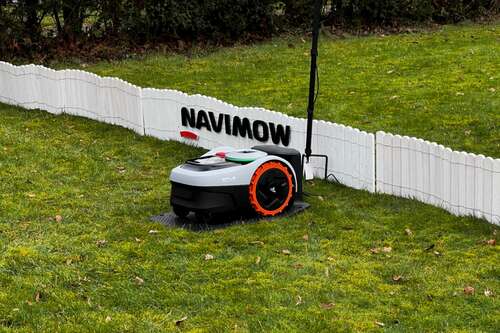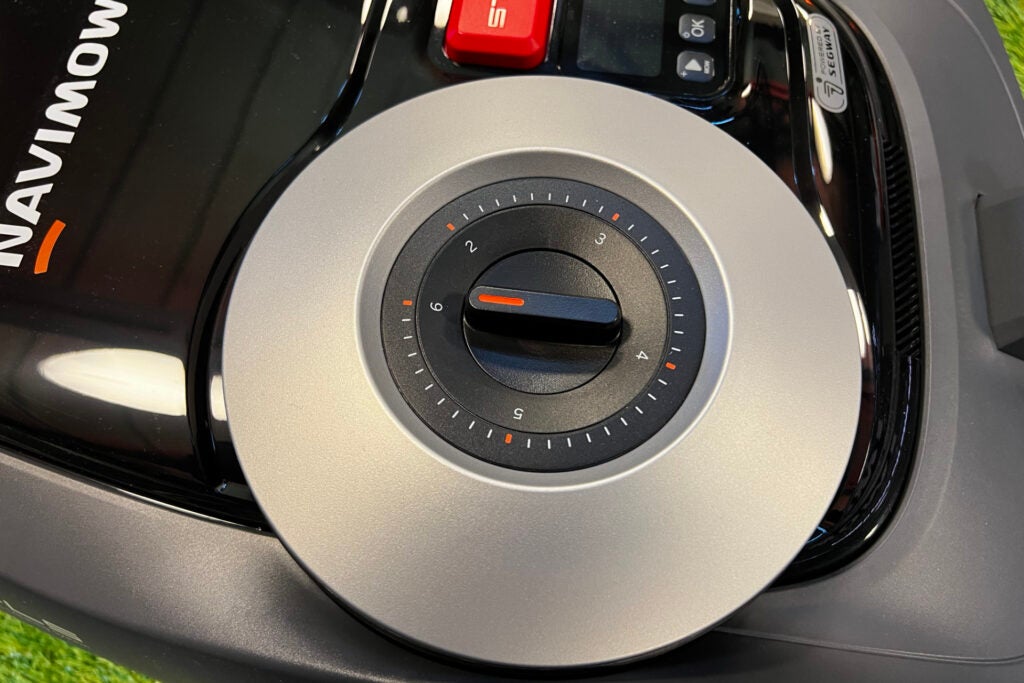We’ve reviewed a couple of robot lawnmowers that don’t require boundary wire, but they were both a little fiddly to set up and relatively expensive. With the Segway Navimow i Series, the company is promising easier configuration and a starting price of just £949.
Building on the high-end Navimow H Series (of which we reviewed the Navimow H1500E), the new i Series is designed to be smarter and easier to configure, and is cheaper, aimed at people with smaller gardens.
Navimow i105E and i108E
Segway has announced two new products, which are identical, bar the size of battery, and, therefore, the area they can cover. The entry-level model is the Navimow i105E, which will cost £949 and covers an area up to 500m2; there’s also the Navimow i108E, which will cost £1199 and can cover an area up to 800m2.
Rather than using boundary wire, the i Series uses GPS with the Exact Fusion Location System 2.0 (EFLS) system. As with the original H Series product, EFLS 2.0 uses two GPS receivers – one in the robot and one connected to the docking station – to provide precise location and mapping via Real-Time Kinematic (RTK) positioning.


For this model, Segway has manufactured its own RTK module, which the company promises makes for easier setup. Plus, Segway has optional 2m extension poles and roof-mount kits available if you need to relocate the base station’s receiver to get a better signal.
“It’s very easy to find an antenna place,” said Calvin Chen, CTO and President of Segway Navimow. “We have a new tutorial in the app to help find the best location.”
Upgraded vision system
Both i Series products have an integrated VisionFence camera (offered as an upgrade option on the H Series), uses for improved navigation, obstacle avoidance and smarter mapping.
With the camera, the robot can automatically recognise garden borders, creating its own map (manual override is available). We saw the system in operation and were impressed with how it worked in the demo area, which consisted of a fenced-in lawn on three sides, and a hedge on the fourth side.
VisionFence uses AI to detect 28 different objects and avoid them, including BBQs, picnic blankets, toys, garden tools and more.
Should the robot hit an area with poor satellite coverage, it can uses its camera to aid navigation. This feature is available during daylight hours only and is switched off at night, although a headlight does mean that object avoidance is still available.
With the camera, the robot is capable of more precise navigation, offering a new Ride-On mode. With this enabled, the i Series can move down a border at the same level as the lawn, cutting right to the edge and removing the need for a grass trimmer. For taller boundaries, such as fences, the lawnmower can cut within 10cm of the edge.
Cutting heights
Rather than using a motor to adjust the cutting height, the i Series robots have a manual dial on top that allows a cutting height of between 2cm and 6cm, which covers everything you’re likely to need from a nicely-clipped short lawn, to a slightly longer and fuller finish. Using a manual dial means the cut can’t be adjusted from the app, but it helps keep the cost down.


Even so, the range of features at this price is impressive, especially considering that the H Series cost more than £2000. George Ren, CEO of Segway Navimow explained that the lower price was down to having a mature supply chain and developing a lot of technology in-house.
“Technology innovation means we design our own RTK [positioning system] and vision system in-house,” explained Ren.
Smart features
Wi-Fi and Bluetooth are built-in, giving full remote control options from the app, which gives manual start/stop options and scheduling. In addition, there’s an optional 4G module, which can be used in larger gardens where Wi-Fi coverage is poor. Plus, the 4G module also adds a safety lock, where the robot will lock if it’s removed from its home location, broadcasting its current position to help with retrieval.
There’s also a plan to boost the robot’s smarts further in April or May.
“We’re planning to integrate Alexa and Google Home,” said Chen. “Matter, we’re investigating, but it might take some time.”
Both models are available now, and we will have a full review when samples are available.

